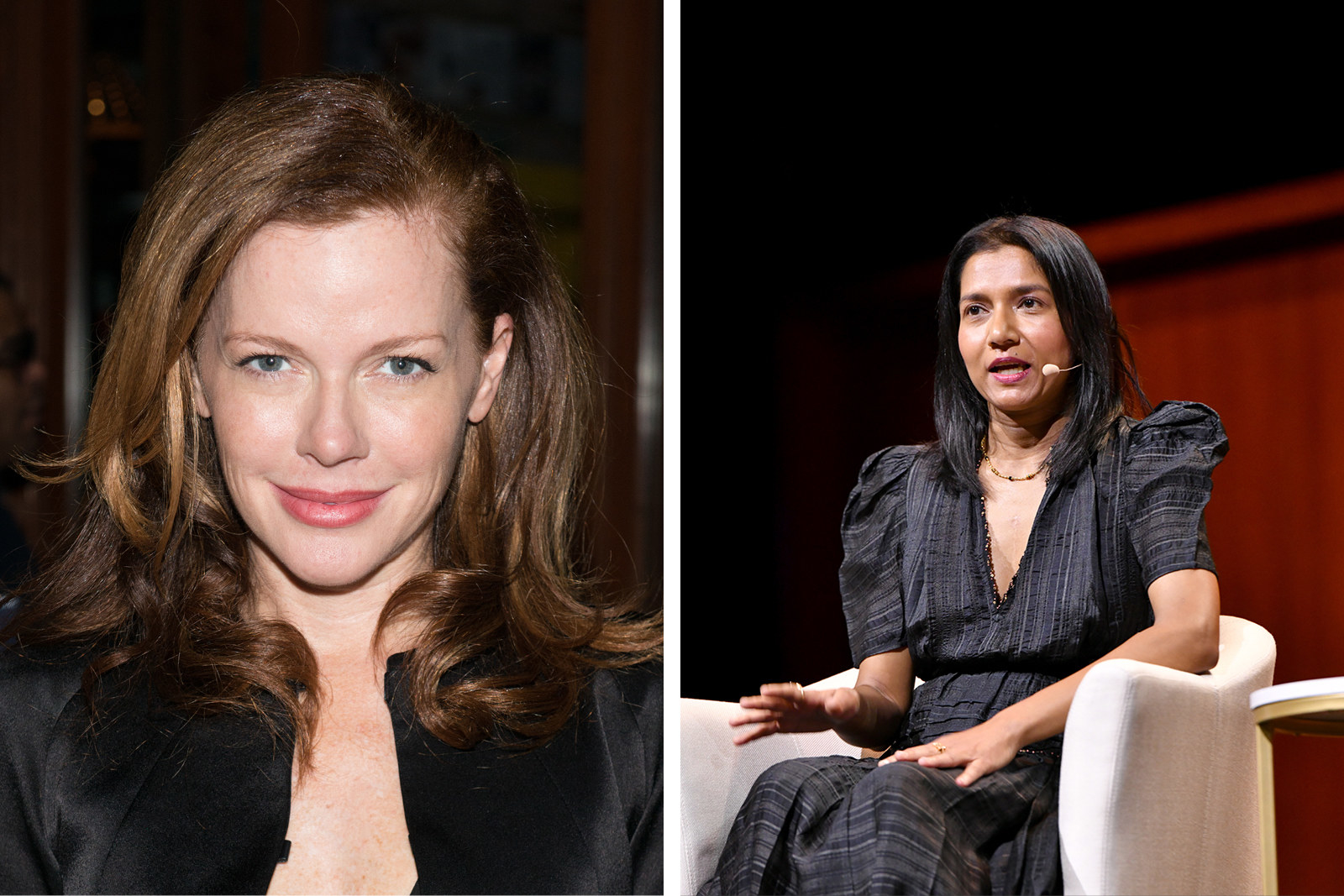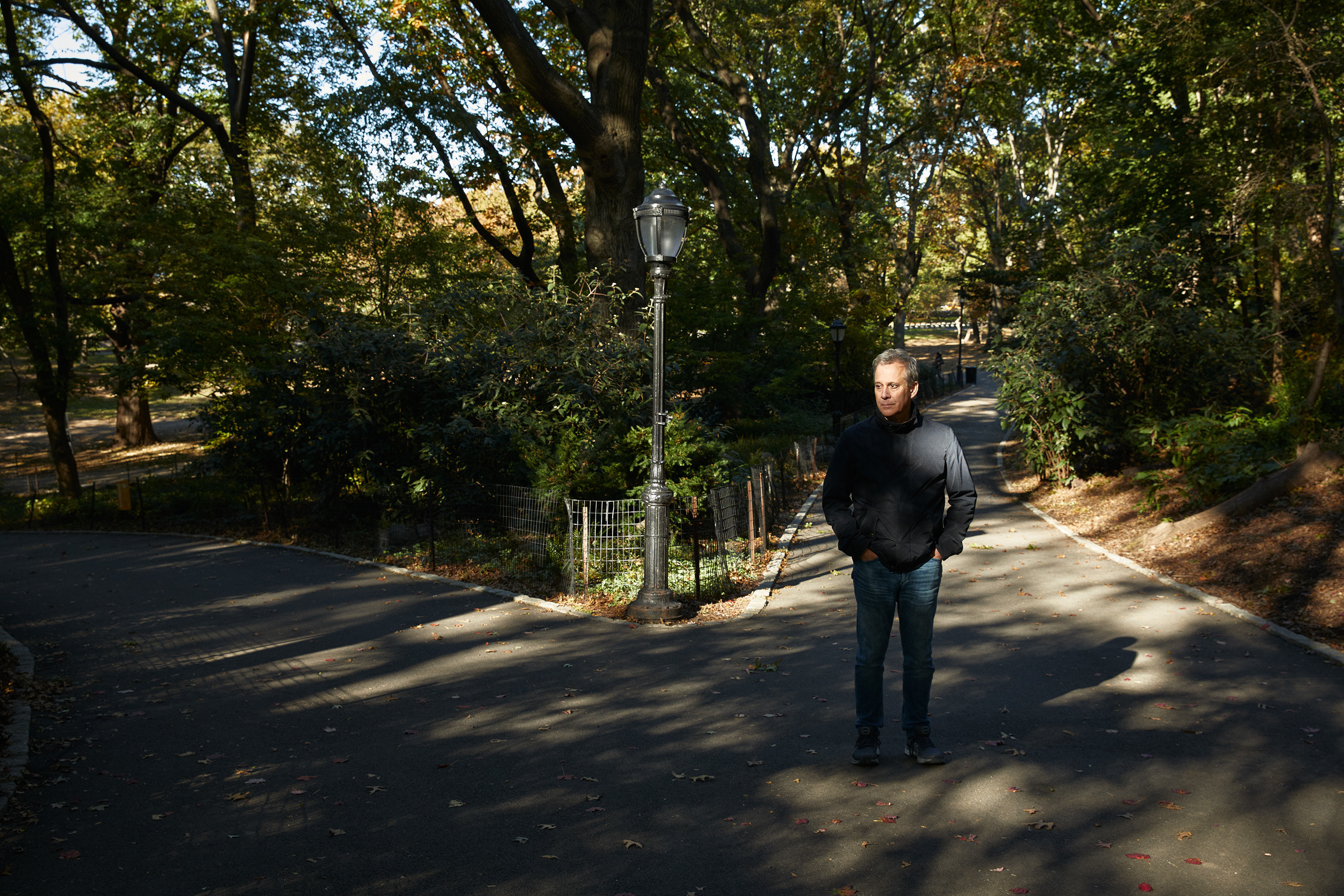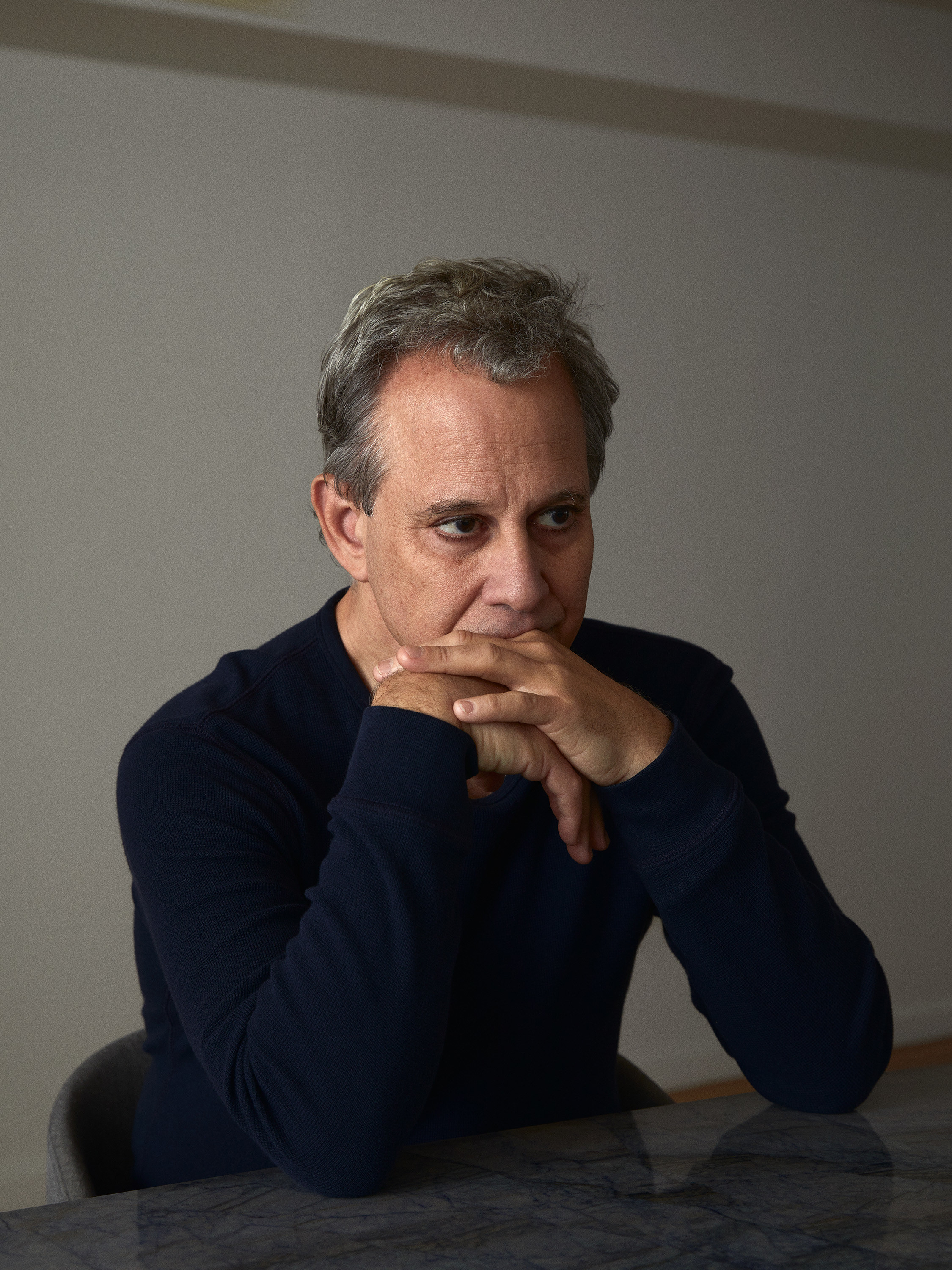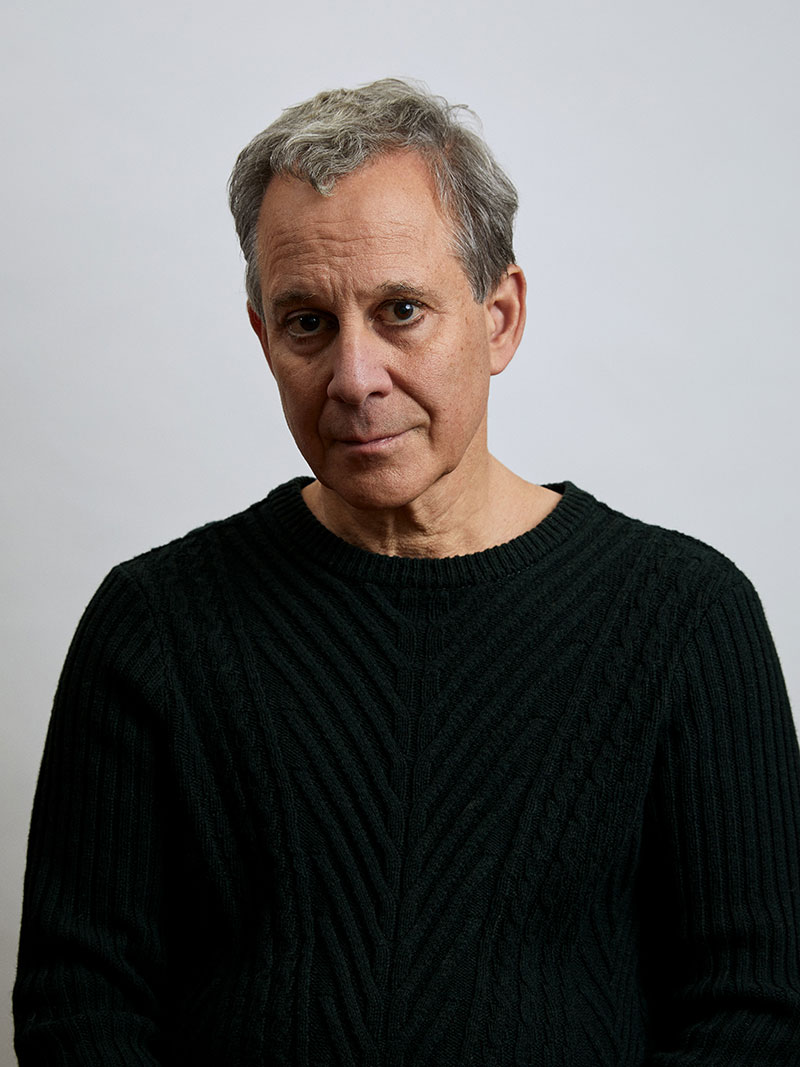Eric Schneiderman paced around his prewar Upper West Side apartment in what he would later call a “crazed bunker mentality,” trying to make sense of the past few days.
As New York’s attorney general, Schneiderman had been a hero to liberals nationwide for his leading role in the anti-Trump resistance. That changed when the New Yorker reported that multiple women had accused him of physical and emotional abuse. Within hours, Schneiderman learned his longtime rival, then-governor Andrew Cuomo, had ordered a criminal investigation, after which Schneiderman felt compelled to resign.
Since then he had cloistered himself inside, taking covert house calls from his psychiatrist and hiding from the reporters who camped out in lawn chairs on the street below. His lawyers instructed him not to make any public statements, but privately he obsessed over the injustices he felt he had suffered, from the article, which he thought was unfair, to the political allies who had hastily abandoned him. As Schneiderman stewed in denial and resentment, he got a message from a friend, Anna Graham Hunter, that shook him out of his bitter reverie.
On May 7, 2018, the day Schneiderman’s life changed forever, Hunter was sitting at her computer, wrapping up an article for the Hollywood Reporter about how some #MeToo “silence-breakers” were struggling after coming forward.
She was one of them. “Why have I been so angry?” she wrote. “Shouldn’t I be feeling better now that my story is out there?”

Procrastinating, Hunter opened Twitter. That’s when she saw the New Yorker’s Schneiderman investigation. The findings made her sick to her stomach. But despite her disgust, she wasn’t sure if she wanted to cut him out of her life.
Her own experience had shown her the power of naming and shaming, but also its shortcomings. After Hunter accused the actor Dustin Hoffman of sexual harassment in November 2017, other women came forward with even worse claims against him. She was immensely proud of what they had accomplished together. Yet speaking out didn’t provide her with closure, because Hoffman offered only a vague apology before publicly impugning the women’s credibility.
“You have some serious fucking reckoning to do.”
He wasn’t the only one. Throughout her life Hunter had had a variety of upsetting experiences with men, some of which she now categorized as sexual assault. Other women could commiserate with her, but it usually concluded with “men are trash,” Hunter said. “After the initial endorphin hit of self-righteousness, those aren’t fun thoughts to have, and I don’t know that they ultimately lead to lasting change.” Therapists only wanted to talk about childhood trauma, and other men she knew were too defensive to engage. Hunter wanted to know why all these guys were the way they were. She craved thornier conversations around abuse, sex, and power, but so far she hadn’t been able to find anyone who wanted to wade into what she liked to call “the murk.” Maybe Schneiderman would go there with her.
Hunter believed the women who had accused Schneiderman, and she felt deeply conflicted about reaching out to the man who hurt them, but perhaps, she told herself, their dialogue could serve a larger purpose. She figured she couldn’t be the only one with questions that #MeToo had not been able to resolve — questions that felt necessary to explore if the movement was to lead to enduring cultural transformation. Hunter certainly didn’t think abusers deserved their jobs back or that their victims had any obligation to them whatsoever. But she did wonder if it was ever possible for someone who was capable of such terrible acts to change. It was impossible to know, since almost none of the prominent men outed by #MeToo appeared to have seriously tried. What would a genuine apology sound like? What would constitute true remorse? Was rehabilitation a realistic goal, and, if so, what would that process entail?
“Right now I care about the feelings of everyone else hurt by this more than I care about your feelings,” Hunter wrote to Schneiderman four days later. “You have no idea how this has gutted so many, many people, people that I care about and love. No idea. This is by far the worst #MeToo story to come out in many ways.” She laid into him for what she saw as sexual entitlement and publicly masked misogyny: “You have some serious fucking reckoning to do.”
“I will continue to have many ups and downs as far as you are concerned,” she wrote. “You're still my friend, and I still love you, but I am not going to be an easy shoulder for you.”
“I had to sleep on this one,” Schneiderman wrote Hunter back the next day. “I accept the hard shoulder role you are uniquely qualified to play, but it may take a little time before I can fully lean into this conversation. You may not care about my feelings, but I am still reeling from the multiple shocks of the last 5 days and my mental state is pretty fragile right now. Although I go way up and way down. I know the path forward includes taking full responsibility for everything I have done, but I am only capable of taking things day by day right now. I hope you can understand that, even if you think less of me because of it. Having said all that, this conversation is very important to me. I hope we can take it up again when I am better equipped to engage.”
The discussions that Hunter and Schneiderman had over the next three and a half years — on the phone, in emails, over meals, and during long walks through Manhattan’s Riverside Park — were at times revelatory. They helped Hunter better understand the harm men had done to her and how it had shaped her. And they helped Schneiderman understand that he did not deserve to hold a position of power again.
“I really was given the gift of desperation.”
Unlike so many other men accused of abuse and misconduct — including Cuomo, who later resigned after facing sexual harassment allegations and is now reportedly planning his return to public life — Schneiderman insists he is not looking to make a political comeback. Instead, he said, he realized that he had only himself to blame for his downfall, and that his subsequent growth was only possible because he was publicly accused. “The New Yorker story was so devastating,” he said. “It wiped out all the aspects of my life that I relied on to feel good about myself and to feel important and to feel seen and heard, and I really was given the gift of desperation.”
In response to my questions about the allegations and their aftermath, Schneiderman agreed to meet for multiple on-the-record interviews, connect me with friends, and give me access to emails and other sensitive documents. He said he believed his ongoing journey might be of value to the public. Throughout, he employed the services of a crisis communications professional.
Over the same period that he was diving into “the murk” with Hunter, he was also preparing his defense against potential criminal charges and professional misconduct sanctions. His quest to redeem himself personally and his quest to protect himself legally become two of the dominant themes of his post-#MeToo life.
They would turn out to be irreconcilable. Schneiderman could do everything possible to make amends, or he could defend himself, but he couldn’t do both. Would his personal awakening really help anyone other than Eric Schneiderman?

The news about Schneiderman, now 67, came seven months after assault allegations against Harvey Weinstein sparked the #MeToo movement, and it still felt like every week another famous and powerful man was accused of sexual predation. Unlike the accusers in many of those other cases, the women who said Schneiderman had abused them didn’t work for him, but their claims were just as harrowing: physical assault that took place during relationships or intimate encounters, perpetrated by a man who held the top law enforcement position in the state.
Two former girlfriends, Michelle Manning Barish and Tanya Selvaratnam, who had both dated Schneiderman within the previous five years, told the New Yorker that he had “repeatedly hit them, often after drinking, frequently in bed and never with their consent.” They said that he was also controlling and emotionally abusive outside of the bedroom and that he threatened to have them killed if they broke up with him. Selvaratnam, who was born in Sri Lanka, said Schneiderman had called her his “brown slave” and demanded she refer to herself as his “property.” The magazine reported that a third ex told Manning Barish and Selvaratnam that he had repeatedly subjected her to nonconsensual physical violence. A fourth woman who spoke anonymously said Schneiderman had slapped her across the face during a romantic encounter in the Hamptons in 2016.

The New Yorker stressed how hypocritical it was for Schneiderman, a Democrat who championed domestic violence legislation and called the #MeToo movement a “critical national reckoning,” to be accused of intimate partner violence. But it was more personal for Hunter. An organizational development consultant and freelance writer, she met Schneiderman in 1999, when he was a New York state senator and she was a member of his communications team. She moved away from politics, but they stayed in touch as his career soared. He became the state’s attorney general in 2010 and was seen as a future contender for governor. After Donald Trump’s election, his office fought for environmental protections and birth control access and sued Trump University for fraud. People greeted him on the street like he was a rock star, begging him to protect them. He and Hunter had recently been speaking more often than usual as she debated whether to write about Hoffman.
“I feel like the two halves of my universe have exploded into each other,” she wrote to a friend when the news broke about Schneiderman. “He came to my 50th birthday party in January and lit the fucking candles on my cake. He’s bragged about me to others, telling them how proud he is of what I did coming forward.”
“I feel like the two halves of my universe have exploded into each other,” Hunter wrote when the news about Schneiderman broke.
It took Hunter a few days to contact him.
“I went around in torturous loops,” she said, “wondering whether there was any point in spending my energy talking to Eric when I could be supporting women instead.”
Schneiderman’s press team had advance notice that the New Yorker was investigating his relationships, but he had told them not to worry — back then he was so “oblivious,” he said, that he didn’t feel his personal life would interest a journalist. He knew he had problems: alcoholism, workaholism, maybe even narcissism. But although as attorney general he had pursued high-profile #MeToo offenders, he said he did not see a connection between what he felt were simply personal shortcomings and the crimes he was accused of.
He had never interrogated why he enjoyed what he then thought of as “rough sex,” he said. The way he saw it, some of the women he dated were into choking, slapping, and dark role-play, and some weren’t. In his mind, he tested their boundaries, but he didn’t force anyone who told him to stop, which to him meant he was in the clear. He had other exes who backed that up. One former girlfriend, Lorna Brett, who dated Schneiderman between Manning Barish and Selvaratnam, told me that in her experience he clearly understood that “no means no.” His ex-wife, Jennifer Cunningham, issued a statement at the time saying she didn’t believe the allegations, which were “completely inconsistent” with the man she had known for 35 years.
The New Yorker gave Schneiderman three and a half hours to respond to the claims in the story. “In the privacy of intimate relationships,” he said in a statement, “I have engaged in role-playing and other consensual sexual activity. I have not assaulted anyone. I have never engaged in nonconsensual sex, which is a line I would not cross.” He also denied ever threatening to kill anyone.
When Schneiderman’s attorneys were preparing him for the criminal investigation Cuomo ordered, they recovered messages that they believed showed the women had not just consented but pursued relationships with him after the alleged abuse. Schneiderman was upset he didn’t have the opportunity to show the New Yorker this evidence. He was eager to tell Hunter about the other ex-partners who still supported him and the holes he saw in the story, using what she called his “politician voice.”
“He wanted me on his side, and he considered being on his side believing that he was wronged,” Hunter said. Those early conversations were maddening for her, and she often raged at him.
“I don’t care what you didn’t do,” she told him. “I care what you did do.”
Despite his bitterness, Schneiderman said, he didn’t want to follow in the footsteps of the many other famous men who refused to resign from their jobs or otherwise accept any responsibility after being called out. Nor did he want to take refuge in one of the numerous safe spaces, from men’s rights forums to right-wing podcasts, for resentful men who want to nurse their grievances about #MeToo.
Hunter had told Schneiderman that he was open-minded after he spoke with his therapist but impossible to deal with after a meeting with his lawyers. So he devised a code word, “criminal defense loop,” that Hunter could wield whenever Schneiderman started arguing his case, after which they would move on to more productive ground.
Over those first six months, Schneiderman completed an in-patient alcohol rehabilitation program, committed to sobriety, and started weekly therapy. He had always been drawn to meditation, and he revived his practice and Dharma study, which allowed him to confront his fear and shame. “It helped me to be in my body, to get out of my jabbering mind, and to really be able to identify difficult feelings, and instead of running away from them, be able to sit with them,” he said. During our interviews, he sometimes fingered the 108 Buddhist mala beads he wears on his wrist to remind him “to breathe.”
He and Hunter also started a “feminist book club,” discussing challenging work by writers from New York magazine’s Rebecca Traister to philosophers Kate Manne and Ken Wilber. They read Moira Donegan on why she started the “Shitty Media Men” list and Tarana Burke on #MeToo’s origin story. They cast a wide net, covering the Black women left out of the suffrage movement, sexual abuse in the Catholic Church, and research on false memories.
By approaching these topics intellectually, Schneiderman began to understand “the scope of misogyny and sexism and patriarchy, how it permeated my life, how it permeated our culture,” he said. But it was harder for him to apply what he was learning to himself.

One day that fall, over lunch at a French restaurant, Hunter told Schneiderman she had recently friended a man on Facebook who had raped her in college. She couldn’t stop wondering what went through his mind when he assaulted her.
“I just wanted to know, what was he thinking? Did he think I said yes? Did he not hear me?” Hunter recalled saying.
Schneiderman responded, sadly, “I think women would be shocked to know how little men think of these things at all.”
Hunter, who increasingly valued the insight Schneiderman provided, felt grateful for confirmation of something she had long suspected: “That a night a man doesn’t give a second thought to is a night that can drastically alter a woman’s life.”
But sometimes his candor was hard to stomach.
“I think women would be shocked to know how little men think of these things at all.”
In September, four months after Schneiderman resigned, millions of Americans watched as Christine Blasey Ford testified that she had been sexually assaulted by prospective Supreme Court Justice Brett Kavanaugh when they were both in high school.
As they continued their wide-ranging discussions, Hunter, on edge from the hearings, started to feel that Schneiderman was showing more interest in the possibilities for abusers’ redemption than in victims’ pain.
“I know that the hardest part about our conversations is that I want you to think what I think,” she wrote him in an email. “And you want me to understand your experience. But for fuck's sake, it's been all about men and their pain and anger for centuries. I'm over it. Every woman I know is over it.”
“I appreciate your honesty, but what you seem to be saying is that right now you can’t muster up much in the way of compassion for men,” Schneiderman wrote back. “Ok. Sit with that. Does that feel ok? It sounds like for you it does. But in my experience, you can’t hear or see someone you have no compassion for, which probably makes any meaningful dialogue impossible.”
“To have you ask how I feel about not having compassion for men...just wow,” Hunter wrote back. “You may not want to talk to me right now. But what I may have meant is I don’t want to talk to you.”
She later told him that she was exhausted by how “the public credibility” of the #MeToo movement “seems to rest on individual stories.” The “constant cross examination of every woman’s account” made it difficult for her to be interested in the nuances of Schneiderman’s own experiences or care at all about the feelings of men in his position. “I’m terrified that one tiny chink will make the whole thing come tumbling down,” she wrote. “The Kavanaugh hearings felt like the final straw when we all just howled. … I don’t think you understand the collective experience of women who’ve been abused by men and had our experiences be invisible for our entire lives until a year ago. How could you?”
Schneiderman replied, thanking Hunter for her honesty and conceding that he had been ignoring that collective experience: “Looking at women’s stories as the tales of individuals with agency (and who must take responsibility for their own roles in any situation) misses the overwhelming, crushing impact of our shared culture on each and every situation.”
At first, Schneiderman felt disgusted by Kavanaugh, who struck him as “the big WASP-y jock” who would have bullied him in school. But in therapy, he had been unpacking his upbringing — private school in Manhattan, followed by Amherst and Harvard — and his relationships with his mother and his father, who, like Schneiderman, was a powerful attorney and a “functional alcoholic.” When he later read an essay on Kavanaugh’s privilege, the similarities between him and the nominee came into even sharper focus. They both had “benefitted from the American patriarchal structure,” Schneiderman said, and were both brought up to think they could “make the rules and therefore break the rules and prosper.”
When I asked Hunter why she kept speaking to Schneiderman even when he upset her, she cited dialogues like the one above. She was intrigued by his willingness to be honest with himself — even if it was a slow and difficult process — and to keep reading what made him uncomfortable. Plus, yelling at him was really cathartic.
“I felt like so much of the #MeToo conversation was just women talking to other women and talking about what we wanted to say to men who had done bad things, and now I could actually say it to his face and he had to listen to every word,” Hunter said.
Meanwhile, Manning Barish and Selvaratnam were writing through their trauma — Manning Barish on social media, Selvaratnam for the New York Times.
Selvaratnam began working on a memoir about their relationship, one that would grapple with the contrast between Schneiderman’s actions and his do-gooder persona. “His outward-facing spirituality was a mask for the torment beneath the surface,” she later wrote. “His outward-facing feminism was a mask for his misogyny.”
Hunter and Schneiderman were exploring similar themes together. When they read “The Rub of Rough Sex” by Chelsea Summers — an essay that focused on Schneiderman himself and considered how progressive men have used “kink as a cover for abuse” — he felt seen in a way he hadn’t before. The essay “really got me to look at my sexual activity, and say, OK, is there something deeper going on here that I’m missing?” Schneiderman recalled.
“I was just swimming deep in the ocean of power and privilege, but I didn’t even know I was underwater.”
After months of reading and thinking, he said he realized he had sought to control the women in his life and felt entitled to sex not just because of the sexist culture he grew up in but because of the authority that his job conferred.
Especially during the Trump years, when he gained national stature, “I was just swimming deep in the ocean of power and privilege, but I didn’t even know I was underwater,” Schneiderman told me. The more his star rose, the more arrogant he became. “Power creeps up on you,” he said.
He came to see that it wasn’t right to have engaged in what he had thought of as “rough sex” without clear rules in advance, not to mention ongoing communication and trust — and that he “had consent wrong” by assuming that if his partners tolerated what he was doing to them, that meant they were OK with it.
“While in some senses that may be legal consent, it’s not ethical consent,” he said. “And the ethical consent requires me to make an inquiry into what a partner really wants and really likes. And I’m very much ashamed of the fact that I gave that so little thought.”
In November 2018, Madeline Singas, then the district attorney who Cuomo had appointed to investigate Schneiderman, announced that she had decided not to pursue charges against him, citing “legal impediments,” including statutes of limitation.
It was a huge relief for Schneiderman. “I was able to get out of my ‘criminal defense loop,’” he said. The public statement he put out was very different from his previous denials.
“I recognize that District Attorney Singas’ decision not to prosecute does not mean I have done nothing wrong,” it said. “I accept full responsibility for my conduct in my relationships with my accusers, and for the impact it had on them. After spending time in a rehab facility, I am committed to a lifelong path of recovery and making amends to those I have harmed. I apologize for any and all pain that I have caused, and I apologize to the people of the State of New York for disappointing them after they put their trust in me."
That recognition was not lost on the women who said Schneiderman had abused them. Selvaratnam later wrote that she found the statement “validating.” Manning Barish took it even further.
“I feel completely vindicated by Eric Schneiderman’s admission that he engaged in the abuse to which he subjected me and the other women,” Manning Barish tweeted. “I wish him well in his recovery process.”

In early 2019, Schneiderman was at lunch with a friend who called #MeToo overreaching and intolerant and questioned whether there was anything men could ever do to appease their accusers. Actually, Schneiderman told them, Time’s Up had recently offered simple instructions: Take genuine responsibility. Work to reform your behavior. Make restitution to those harmed. (His friend confirmed this exchange.)
Afterward, Schneiderman emailed Hunter about the conversation. “Oddly enough, I found myself in the role of defending the movement,” he wrote. “It felt kind of good to be able to lay all of this out. And I felt somewhat calmer.”
Along with meditation, Schneiderman had been consulting with his rabbi, J. Rolando Matalon, who told me that there’s biblical precedent for bringing the shunned back into society. An elaborate priestly ritual described in the Book of Leviticus reintegrated people who had been separated from their community due to contagious skin diseases. Matalon thought that, similarly, there could be a ritual that would publicly reintroduce people who had been excluded because of moral offenses if they were able to make amends.
However, Matalon counseled Schneiderman, Judaism makes clear “that a pariah cannot return without a serious process of repentance and personal transformation, and directly apologizing to those he has harmed.”
Hunter was also urging Schneiderman in that direction. All she had ever wanted from Hoffman was for him to acknowledge and empathize with his accusers’ claims. But “in the absence of any genuine apology, we were out for vengeance,” she said.
Hunter and Schneiderman looked together for meaningful examples of apologies that sought to actively make things right, not just to individual survivors but to the larger public, but couldn’t find many. One study of over 200 statements by people accused of sexual misconduct amid the #MeToo movement found that only a third included an apology of any kind. Another found that even the highest-quality apologies — detailed, not defensive — left the public dissatisfied.
There was a single apology that Hunter and Schneiderman found inspiring. In January 2018, TV writer Dan Harmon apologized on his podcast to his former employee Megan Ganz, saying he realized he lacked respect for women, had hidden behind his progressive politics, and never would have changed his behavior if she hadn’t accused him publicly on Twitter. Afterward, Ganz just as publicly forgave him.
But Schneiderman was nervous he’d get it wrong. After he graduated earlier that year from a meditation class in Manhattan, the studio posted a photo of its newly certified students. When Manning Barish found out, she was outraged. Schneiderman was “an untreated sexual assaulter and predator,” she tweeted. “He has no business teaching meditation. He has not even been rehabilitated yet.” He told me he had no intention of teaching and that the class was for anyone who wanted to deepen their practice. But news outlets picked up the story, and he was banned from the studio. The experience made him feel like it would be easier to stay silent.
“My male friends often say to me: don’t even try to apologize,” he once wrote to Hunter in an email. “Whatever you say won’t be enough. You will be attacked all over again and will have admitted to wrongdoing.”
Hunter encouraged Schneiderman to push past his anxieties — if he had apologized earlier, and Manning Barish had known about his ongoing progress, maybe the meditation class incident would never have happened. In February, she suggested he start with Selvaratnam. The night before, Hunter and Schneiderman had discussed Selvaratnam’s New York Times article, in which she said he had “tested” her by giving her little slaps.
“I have never heard you understand Tanya’s point of view like you did last night,” Hunter wrote to him. “How it’s a slippery slope of giving in to what you don’t want to do for the sake of staying with someone.”
Schneiderman started writing the apology.
“I am now clear: I am very, very sorry for my appalling conduct towards you,” he wrote in a draft version. “I have a lot more work to do and amends to make, but I felt that it was important to reach out as a work in progress and to tell you that I am sorry.”
It was brutally hard to face up to what he had done, he wrote, and for months he had been “too fragile” to see what he did with any clarity. “None of this excuses my conduct towards you,” he wrote. “From the beginning, I bossed you around. Maybe lightheartedly at first, but over time, I became less and less considerate and more and more nasty and controlling. And I pushed you to go along with things in bed that I now recognize you did not want to do.”
He never asked her whether their relationship worked for her, he wrote. Instead, he took it for granted and was deeply ashamed.
“I have a long way to go, but I am committed to doing the work I need to do to become a better, healthier human being, and to ensure that I never behave the way I did with you with anyone else ever again,” he wrote.
Hunter was overcome after she read the draft.
“I think I’ve been honest about how emotional this is for me — that the weight I’m putting on this apology goes far beyond you and Tanya,” she wrote to him. “I’m not saying that’s right or healthy, but I haven’t spent the last 10 months talking to you so intensely just because you’re my friend and I care about you … Having you get to the point where you could even write a letter like this is all I have wanted since we started talking. For you to GET IT. As I said...in many ways you’re a stand-in for all the other men in my life who will never get it, because they won’t even try.”

Schneiderman never sent the letter.
Shortly after he drafted it, he learned that a state committee that investigates wrongdoing by Manhattan attorneys was conducting a probe into the allegations against him. If the First Department appellate court found him responsible, he could be suspended or disbarred from practicing law.
That wasn’t a consequence Schneiderman was willing to accept. He shelved his apology plans, convinced that if he reached out to the women it might be considered witness tampering. And he lawyered up again, reentering the “criminal defense loop” he had worked so hard to overcome. Records show that his attorney’s response to the committee did not reflect Schneiderman’s newfound understanding of consent. Instead, it reiterated his old arguments, protesting that his “consensual relationships with his romantic partners in the confines of his bedroom” should not be subject to further scrutiny.
When Schneiderman was deposed for the investigation in January 2020, he said Manning Barish and Selvaratnam had, respectively, enjoyed their “adventurous” and “dominant-submissive” sex life, according to the committee records.
“I’m confident that neither one of them ever after sex or the next morning said ‘I don’t like what you did, don’t do that anymore’ or any words to that effect,” he said.
All those emails and texts that Schneiderman had worked hard not to dwell on were deployed in an attempt to discredit the women. He said in his deposition that, contrary to Selvaratnam’s claims that she feared for her life, she had fought to stay together when he broke things off, “devastated” to lose him not “just as a romantic partner but as a teammate for her career.” He argued that the New Yorker was wrong that the anonymous woman in the Hamptons rebuffed him after he slapped her, and that the magazine had failed to report that they had stayed in “warm and flirtatious” touch afterward. As for Manning Barish, the records cited emails from her in the months after they broke up in which she told him she loved him, missed him, and wanted to marry him. Referencing allegations that former New York governor Eliot Spitzer had choked a woman, she said she felt sorry he hadn’t met the right girl yet. “Too soon for you to give him my number?” she quipped. Until Schneiderman, “no one ever understood my darkness,” she wrote to him. “I miss that part of me being controlled and celebrated.”
In his deposition, the committee lawyer drilled Schneiderman on the contrite statement he had released after the DA declined to prosecute. For the women who said he’d abused them, that statement had been validating and vindicating. For Schneiderman himself, it had represented crucial progress forward on his path toward self-improvement. But it was the committee’s job to assess whether he had committed professional misconduct and should be disciplined, not to ensure the women got what they needed to heal. And to the committee lawyer, it seemed, that statement was an opportunity to trap Schneiderman in a lie.
If his relationships with the women were as “vibrant and consensual” as he had just described, the lawyer asked, “for what were you apologizing?”
Hunter grew frustrated as she watched from the sidelines. She still held out hope that one day Schneiderman would make full amends to the women, and that they would get the reckoning she herself had never received. “I was vengeful” toward Hoffman, “but mostly I wanted all of us to stop hurting so much,” she said. It seemed like the adversarial legal proceeding made that hope an increasingly distant possibility.
Experts in restorative justice insist there is a better approach in these types of situations. Whether administered through the legal system or outside of it, restorative justice is at its heart a community-based process that seeks to honor the needs of those hurt and ensure accountability for those who caused them harm, instead of asking who broke the law and how they should be penalized.
“It can be difficult to come to the realization that someone doesn’t have to be punished in order for you to heal,” said Sonya Shah, a restorative justice practitioner who is also a sexual assault survivor.
The practitioners who spoke with me said restorative justice, which is inspired by the conflict-resolution practices of some Indigenous cultures, is most crucial for people in marginalized communities. They are the ones who face disproportionate punishment in the justice system, not privileged white men (or in Schneiderman’s case, a privileged white former law enforcement officer).
But some restorative justice experts said it was still worth taking a closer look at #MeToo. They said they understood the valid anger the movement unleashed, but that harsher retribution wasn’t the answer. Research has shown prison does not effectively rehabilitate offenders, and the criminal justice system can retraumatize and disempower survivors, who often say they want their assailant to change but not to be locked up. Most sexual assault and harassment claims are never even referred for prosecution — which is more evidence that other options are needed, experts said.
Firing someone can be a good first step, but it doesn’t necessarily prevent them from getting another job where they hurt more people. Public shaming can spread awareness, but on its own it provides no road map for ending the cycles of harm, experts said, especially since plenty of the most high-profile #MeToo men seem like they’re doing just fine and have no regrets other than getting called out.
Practitioners said restorative justice doesn’t let offenders off easy — in order to participate in the process, they must want to change and be willing to accept responsibility — and that it always centers survivors’ needs. It also allows the parties to make progress even if they don’t agree on all of the facts. Shah said she has counseled men who committed sexual assault who were willing to apologize for some but not all of what they were accused of, and she has worked with survivors who felt that a partial apology could still be beneficial.
“We come down so hard on people when they cause harm that they learn that the only path out of the situation is to remain silent, defend themselves, and admit nothing,” said Erika Sasson, a former litigator and long-standing restorative justice practitioner. This fundamental right to a defense is important in court, she said, but it makes it harder for people to be honest with each other and break the silence and secrecy of abuse. Telling the truth, she said, takes “courage, communication, and support.”
In April 2021, the First Department appellate court issued its ruling: Schneiderman would be suspended from practicing law for a year, conditioned upon continuing therapy and supervision.
The decision included a statement of facts that didn’t substantiate all of the claims against him, but Schneiderman admitted that he had slapped Selvaratnam and Manning Barish and placed his hands on their necks and applied pressure without first obtaining consent. He also admitted to emotionally abusing them, and to slapping the anonymous woman from the Hamptons twice.
These avowals, however, were part of a legal settlement that didn’t seem to fully satisfy either side. Through the process, the women learned that Schneiderman had tried to protect himself by blaming them. The validation they expressed after his earlier statement of remorse was demolished.
“I initially chose not to participate in this after having to keep testifying over and over again,” Manning Barish tweeted after the decision. “But they went after Eric anyway, and he chose to compose a complete lie of a narrative to defend himself, and discredit me. So I fought back.” Schneiderman, she wrote, “belongs in jail.”
Selvaratnam was doing publicity for her book about Schneiderman at the time, and she spoke about how she believed in redemption if an abuser “acknowledges the harm that they have committed and does the hard work to root out their abusive behavior.”
But the one-year suspension was “not enough” to reform Schneiderman, she said. Though they were not in contact, she was confident he hadn’t changed, because she had heard from other professed victims of his, including someone who said he abused her after the news about him broke.
According to Selvaratnam’s book, her evidence for that claim was an email she received from a woman who said Schneiderman was a “sadist and predator” who had “targeted” her. She didn’t include more details. Selvaratnam acknowledged that she did not speak to the woman and couldn’t “vouch for her experience.” Still, the note felt like “an affirmation.”
“It also sparked the first time I felt rage toward Eric,” she wrote.
When I asked him in December 2021, Schneiderman denied the allegation and said he hadn’t been romantically involved with a woman since May 2018. He said Selvaratnam didn’t reach out to him before publishing her book or before repeating the claim to the press.
After the ruling, the anonymous Hamptons woman identified herself as Danya Perry, a prominent attorney who used to work for the Southern District of New York.
Perry told me she was horrified and distraught when Schneiderman slapped her during a romantic encounter after a party, and that she had immediately made her feelings clear. Afterward, she said, it seemed like Schneiderman had genuinely misread the situation. He told her he had dated other women who enjoyed being slapped, and she believed him when he said he had made a drunken mistake. But when Perry heard that journalists were looking into a possible pattern, she decided to tell them about her experience.
She wasn’t interested in prosecuting Schneiderman, and at first she didn’t want any role in the committee proceeding either. Losing his job and reputation seemed like enough. But then she learned that he had defended himself by minimizing the fact that he slapped her and exaggerating her forgiveness.
“If he had acknowledged and apologized, I would have said, Why do we need to punish this guy anymore?” she told me. Perry decided to cooperate.
“Does he really get it? Or does he just want people to think he gets it?”
She felt the yearlong suspension was fair. As a lawyer herself, she understood the pressure Schneiderman faced not to admit wrongdoing that could have opened him up to further legal risk. Still, Perry said, if he had “thought outside the box” and reached out to her to apologize directly, she would have considered the matter resolved.
“I’m sure it was useful, and I do find it intellectually interesting,” she said after I told her about his conversations with Hunter. “But I don’t know why he hasn’t used that work, even now, to actually apologize to the women he harmed.”
I asked her if she would ever participate in a restorative justice process with him. “I feel like I’m doing it with you right now,” she said, only half-joking. Yes, she said, she would. But she also thought his decision to speak to a journalist instead of to her directly was “a little cowardly.”
“He’s using you as an intermediary, rather than reaching out directly,” she said. “He wants to be rehabilitated in the court of public opinion. I think it probably is useful for a public figure to come forward and explain their thinking and their contrition, but it would all have a more pure tone to it if he had also separately and privately apologized. He’s gotten to the point where he can redeem himself publicly, but he has not yet gotten to the point in the process where he would make a private apology?”
The more Perry thought about it, she found his reasoning for speaking with me “strange and a little questionable.”
“Does he really get it?” she asked. “Or does he just want people to think he gets it?”
Others took an even dimmer view of Schneiderman’s professed progress.
“Anything involving Eric is not to be trusted,” Selvaratnam wrote me in an email. She declined to comment further.
Manning Barish said the idea that anything Schneiderman had to say could be instructive was “part of a PR strategy to resurrect a perpetrator’s career” and that I was “complicit in his future predatory acts.”
“I don’t care what happens to Eric Schneiderman. I care that he doesn’t have any power over the women of New York anymore.”
I also reached out to Jess McIntosh, who in 2018 wrote an essay for Elle about going on an unsettling date with Schneiderman in the early 2000s.
“I don’t care what happens to Eric Schneiderman. I care that he doesn’t have any power over the women of New York anymore,” McIntosh said. “I very much care about taking away power from people who don’t treat women as human beings and are somehow surprised that acting physically violent is wrong.”
She was skeptical and unimpressed when I told her about his conversations with Hunter.
“I hope he stays woke,” she said, “and I hope he stays quiet.”
None of the women who spoke out in 2018 seemed satisfied with the liminal space in which Schneiderman now exists. The criminal justice system couldn’t address his harm. The committee decision didn’t appease them, and in some ways the process seemed to make matters worse. Public awareness pushed Schneiderman out of power but hasn’t held him accountable for whatever he has or hasn’t done since.
Over the last four years, post-#MeToo efforts toward systemic progress have delivered mixed results. Lawmakers have introduced a wave of carceral bills that some experts say will do more harm than help. Some of the men exposed by #MeToo have been replaced by women in the workplace — for example, Letitia James holds Schneiderman’s former position — but many others have scored new jobs and been nominated for fancy awards. Meanwhile, Time’s Up, the prominent anti-harassment charity that was supposed to tackle structural #MeToo issues, fell into crisis because of its ties to Cuomo. There has been scant funding or research to determine how restorative justice might address these issues on a larger scale, although the newest reauthorization of the Violence Against Women Act has a proposal set aside for restorative practices.
Although it’s been nearly three years since Schneiderman said he knew his path forward included amends and restitution, he still has yet to directly apologize to Selvaratnam, Manning Barish, or Perry. As for restitution, he said, he plans on asking them for their input at some point in the future. He hasn’t yet donated any of his own money for that purpose — “I’ve been unemployed for three and a half years with not much in the way of prospects,” he said — but he has donated millions to charity from his old campaign fund, which he can only legally withdraw from for a few purposes. (He also returned money to donors who asked for it back and used some to cover his legal fees.) Selvaratnam has written that she thought it wrong of him to launder his reputation with charitable donations, while Manning Barish recently posted online that she thought it was disgusting he hadn’t donated more.
Schneiderman once hoped to use his skills to volunteer for progressive causes. Before his license was suspended, he reached out to a number of groups, but no one wanted to be publicly associated with him, he said, not even a nonprofit that works with formerly incarcerated people who have committed murder and rape. Eventually he realized that if he swore never to disclose his participation — if he “worked like a blacklisted screenwriter in the 1950s” — he could do interesting and useful work, such as advising organizations on legal and political matters. He also volunteers at a soup kitchen through his synagogue. Rabbi Matalon told me that egoless community service is an important part of repentance: “Atonement requires humility.”
Schneiderman insisted that his journey is ongoing and that he has already made meaningful amends to some people in his life. He repeatedly said that he still hopes to do so to the women who participated in the committee investigation, but he can’t consider it until he gets his law license back — which could take a while, since he has to reapply after his yearlong suspension is up — lest he seem to be interfering in the legal process, since there might a hearing where the women could be called to testify. There’s another factor, too. He wouldn’t speak about the details of his sobriety, but in many programs, such as Alcoholics Anonymous, making amends is a step that comes later on, after committing a “searching and fearless moral inventory” of oneself.
But neither reason explains why he agreed to give me the draft of the apology he never sent Selvaratnam, or why he wouldn’t reach out to Perry even after I shared what she told me about her willingness to engage. Does he deserve more patience and support, or is he a lost cause who, despite all claims to the contrary, cares only about restoring his public image? In the absence of any formalized process that might thoroughly hold Schneiderman accountable, he’s decided to try his luck in the court of public opinion, leaving it up to the readers of this article to assess his progress and decide for themselves.
“I’m trying to do the next right thing every day,” Schneiderman said. “I’m still working on fully understanding the consequences of my conduct.” He added, “I’ve come to understand that the process I’m in now requires me to take some time before making certain amends, and I’m respecting that process and trying to do it the right way.”

Back in 2018, when Hunter first reached out to Schneiderman, she tried to convince him that one day they could go on what he jokingly called a “scab-ripping tour” of America, enlightening audiences about their conversations. She no longer thinks their dialogue is a scalable solution.
“I have no idea if my conversations with Eric will change a damn thing except the two of us, and I no longer care so much about that,” she said. She also used to think that every man exposed by #MeToo had the perfect apology inside of him, ready to be pried loose. She seized on every glimmer of openness she saw in Schneiderman because she thought she could force his apology out. Hunter said she believes him when he says he will make his amends on his own timeline, but she has resigned herself to being unable to “stage-manage” the process.
“Running for office again would be the worst possible move for a recovering narcissist!”
Part of her is afraid to go public with their friendship because she doesn't want readers to think she’s an enabler or betraying the movement. When I saw them both recently and asked Schneiderman to triple-confirm he would never run for office again, which he did, she quipped to him, “If you did, I wouldn’t be your friend,” and then followed up with me to say that she was serious and hoped I’d include that in the story: “Running for office again would be the worst possible move for a recovering narcissist!”
There are times when she feels despondent about it all. “How do we make men care?” she asked me one day. “Does a fear of being disgraced have to be part of the incentive?” But as long as Schneiderman keeps digging into his past and trying to make things right for the future — and as long as their exchanges continue to fascinate and challenge her — she’ll take walks and share meals with him, continuing their conversations about sex, power, and abuse.
Hunter always felt that she was diving into “the murk” with Schneiderman for her own benefit as much as for his. But in August 2021, Hunter read a New York magazine article about a form of restorative justice called “surrogate dialogue” in which survivors work through their trauma not with their own assailant but with someone else who committed similar offenses. Hunter was shocked to realize that she and Schneiderman had, in their own unsupervised, extremely ad hoc way, been engaging in a version of that.
“I don’t want to say I’ve been healed, because I hate that word,” Hunter said. “But having this extended conversation with Eric over three years where I have seen him deepen his own understanding and also deepen mine in a way, has — in the absence of any genuine reckoning or apology I’m going to get from any man who has hurt me — been the next best thing.” ●



